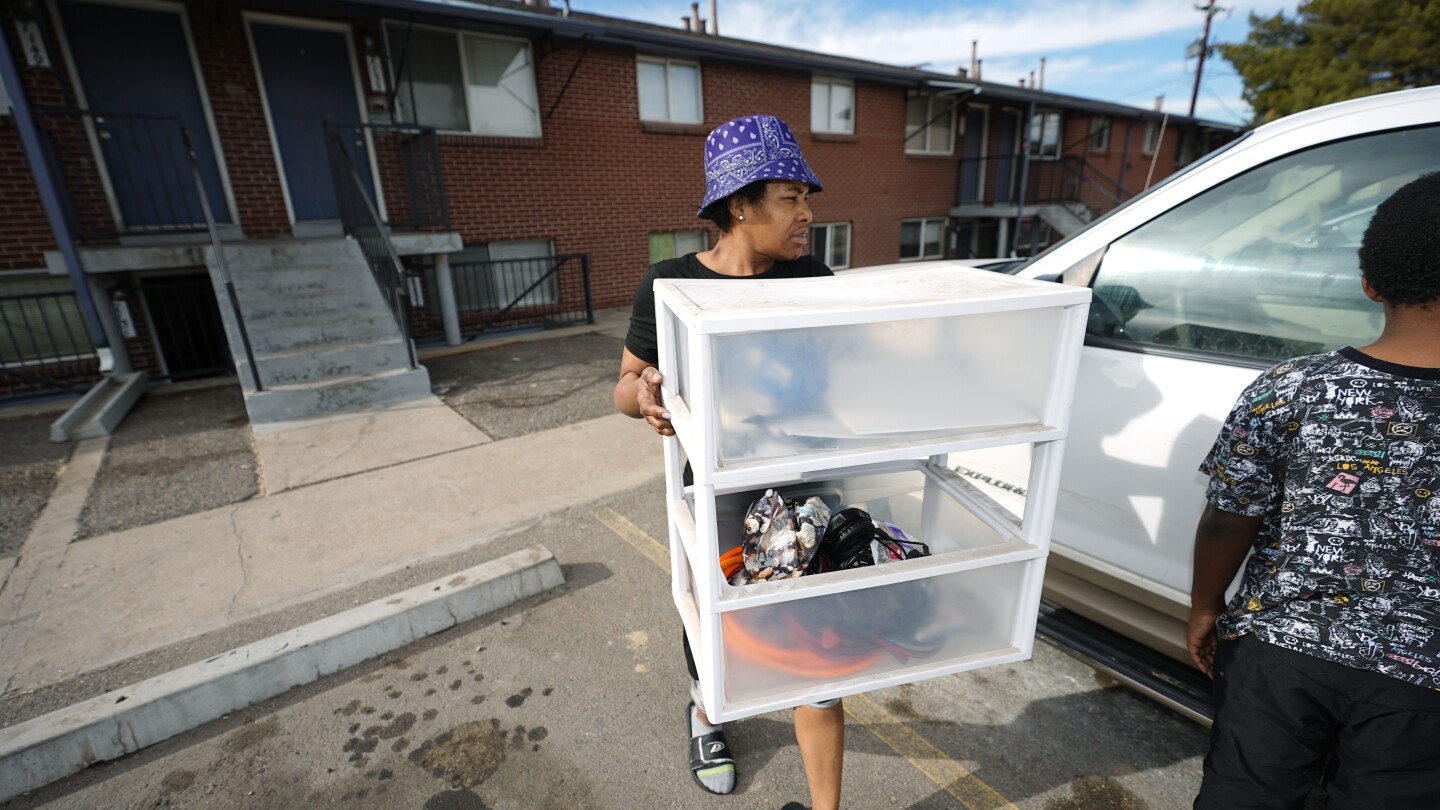- cross-posted to:
- [email protected]
- cross-posted to:
- [email protected]
Single mom Caitlyn Colbert watched as rent for her two-bedroom apartment doubled, then tripled and then quadrupled over a decade in Denver — from $750 to $3,374 last year.
Every month, like millions of Americans, Colbert juggled her costs. Pay rent or swim team fees for one of her three kids. Rent or school supplies. Rent or groceries. Colbert, a social worker who helps people stay financially afloat, would often arrive home to notices giving her 30 days to pay rent and a late fee or face eviction.
“Every month you just gotta budget and then you still fall short,” she said, adding what became a monthly refrain: “Well, this month at least we have $13 left.”
Millions of Americans, especially people of color, are facing those same, painful decisions as a record number struggle with unaffordable rent increases, a crisis fueled by rising prices from inflation, a shortage of affordable housing and the end of pandemic relief.
The latest data from the Harvard Joint Center for Housing Studies, released in January, found that a record high 22.4 million renter households — or half of renters nationwide — were spending more than 30% of their income on rent in 2022. The number of affordable units — with rents under $600 — also dropped to 7.2 million that year, 2.1 million fewer than a decade earlier.
…
In Congress, lawmakers are working on a bill that would expand a federal program that awards tax credits to housing developers who agree to set aside units for low-income tenants. Supporters say that could lead to the construction of 200,000 more affordable homes. Some lawmakers are also calling for more rental assistance, including a significant increase in funding for housing vouchers.



Capitalism is forgetting that the number one rule of being a parasite is that you don’t kill the host.
The rule is “don’t kill the host before you’ve had a chance to reproduce.” Capitalism is good at finding new hosts.
I meant host in the sense of the planet and humanity. So their only hope will be mars :)
Don’t worry they’re putting significant effort into that front, we’ll have a Mars colony before 2050, just about the time that the equatorial regions are getting roughed up from climate change
AI advancements as well as renewable energy should be a utopian paradise for all earthlings.
Instead its a tool to allow culling of the masses thru famine plague and war.
IMO, eventually there will be a tipping point.
Xenomorphs be like: wut